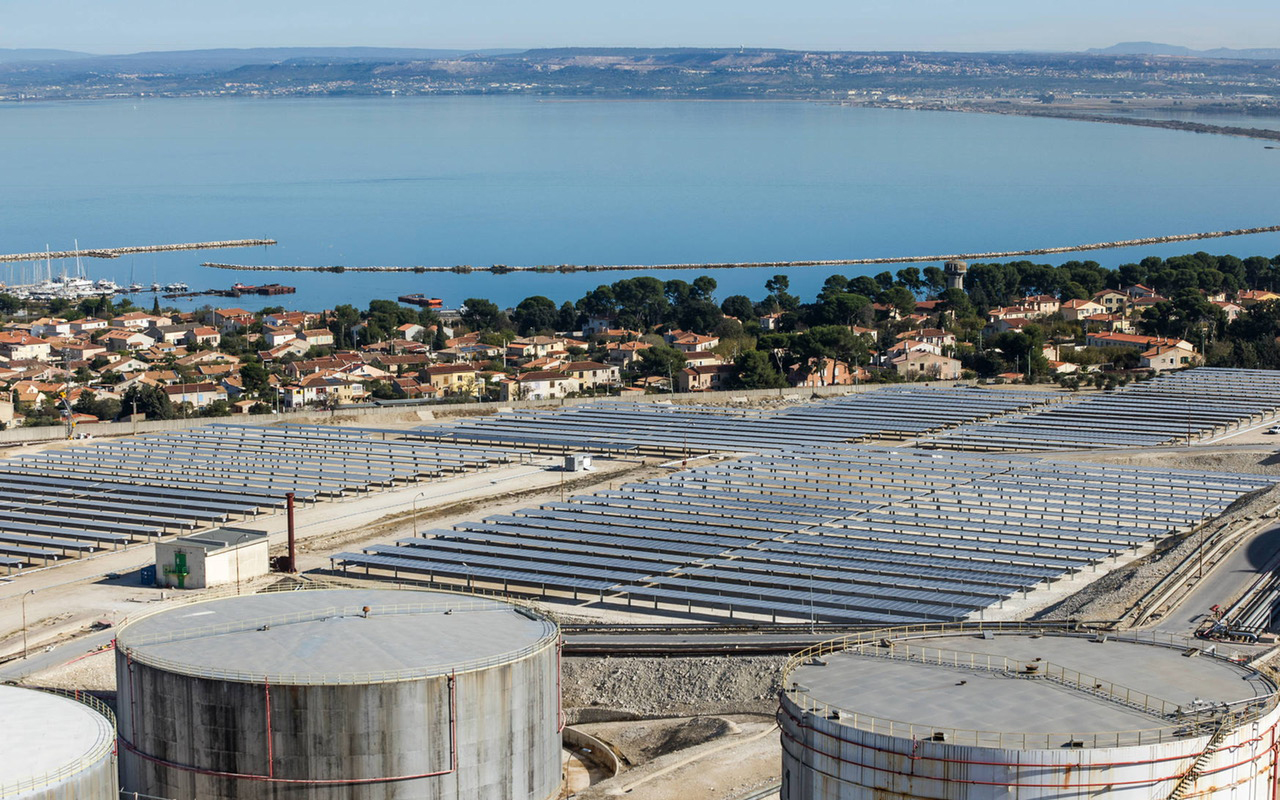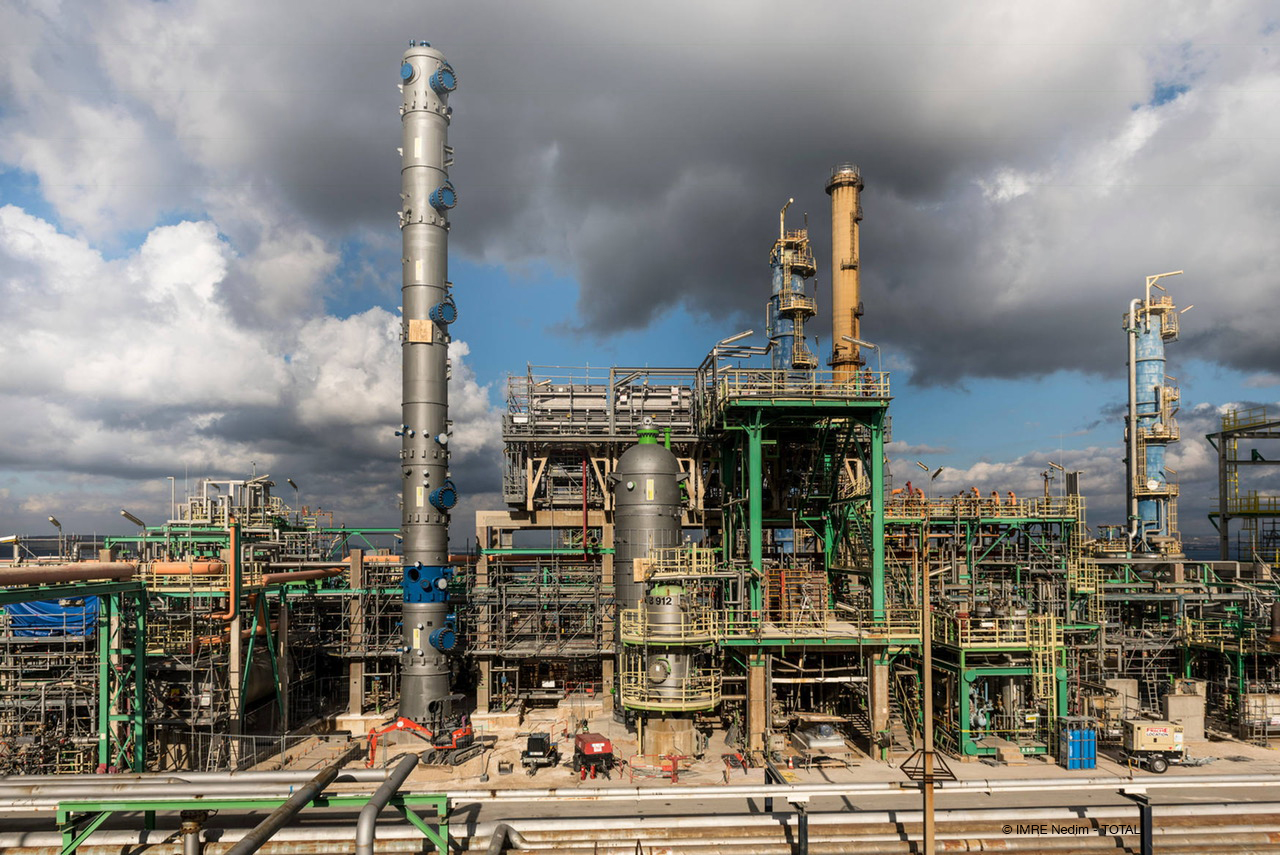Energy company Total gave an old fossil fuel refinery in the South of France a new lease on life as a biorefinery. A turbo compression system supplied by MAN Energy Solutions was part of the complex conversion. When the project came under fire for the quantity of imported raw materials to be processed on site, the company acted fast to ensure a successful launch. After committing to a sustainable supply mix, the plant was put into operation in July.
State-of-the-art biorefinery
In 2015, energy giant Total announced that its La Mède site in the South of France would cease to refine crude oil and be converted into a biorefinery. This summer, as the three-year conversion project entered the home stretch, a final hurdle appeared on the path from outdated and unprofitable fossil fuel refinery to forward-thinking state-of-the-art biorefinery – a path that had its share of obstacles. Luckily, the installation of an MAN turbo compressor was not one of them.

The biorefinery in the port of La Mède near Marseille
Overcoming technical challenges
Converting the plant, while retaining most of the existing equipment, posed a significant challenge. Earlier this year, MAN delivered a centrifugal compressor, which had been especially commissioned for this retrofit.
René Dittmer, Bid Manager at MAN Energy Solutions for the project, explains: “The compressor is allocated to a late stage of the process, compressing wet off-gas from an existing amine absorber, also referred to as an amine sweetener, as it improves the quality of the product. The sweetening is a continuous process, but also faces so-called upset conditions. It had previously been part of the fossil fuel refining process, but had to be adapted to the vegetable oil feed.” And that’s where the new compressor came in. Dittmer elaborates: “The client set specific guidelines for the construction of this machine through Technip France and we were able to realize them. We had to design it taking into account that the gas contains hydrogen sulfide, carbon dioxide and water vapor. This is often the case in refinery machines, but in actual fact, no two machines we build are the same.”
The compressor was delivered earlier this year, in time for a successful launch of the new facility.
Finding the right supply mix
Total had originally approached the conversion of this site, which has been operating in the port of La Mède near Marseille since 1935, as part of its strategy to diversify and explore alternative energies, a goal shared by MAN Energy Solutions.
However, once the operating license seemed within reach, the source of the energy to emerge from this new biorefinery was called into question: the French farmers’ union called for increased use of locally grown rapeseed, in order to support the national agricultural sector and reduce the need for imported raw materials.
At the same time, environmental campaigners criticized the quantity of imported palm oil to be used, compelling the global oil and gas company to clarify its supply plan. Although the refinery was authorized to use 450,000 metric tons of raw vegetable oil toward its processing capacity of 650,000 metric tons per year, this part of the supply mix will consist of various plant oils from diverse sources, including, but not limited to, palm oil. The remaining 30% to 40% of feedstock will come from used and residue oils.

Inside the sprawling La Mède biorefinery
Sustainable steps to success
Following talks with the French Ministry for the Ecological and Inclusive Transition, Total then pledged to restrict crude palm oil to less than half of the feedstock processed on site. The company has also set up a team to ensure it is supplied by producers certified by the Roundtable on Sustainable Palm Oil and is advocating for a European Union high-quality sustainable certification system. A solar plant, which will cover 50% of the plant’s energy needs, is already operational.
Helping Europe meet its biofuel targets
With these obstacles eliminated, La Mède is on track to produce 500,000 metric tons of biodiesel per year and to help contribute to French and EU sustainable fuel targets, which are set to increase to 15% and 10%, respectively, in the coming decades.
The client set specific guidelines for the construction of this machine through Technip France and we were able to realize them.
Explore more topics
MAN Energy Solutions is now Everllence.
We have adopted a new brand name and moved to a new domain: www.everllence.com. This page will also be relocated there shortly. We are working on shifting all pages to www.everllence.com.
